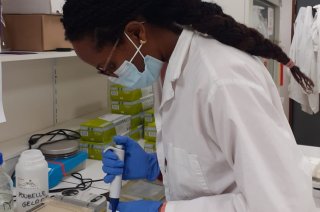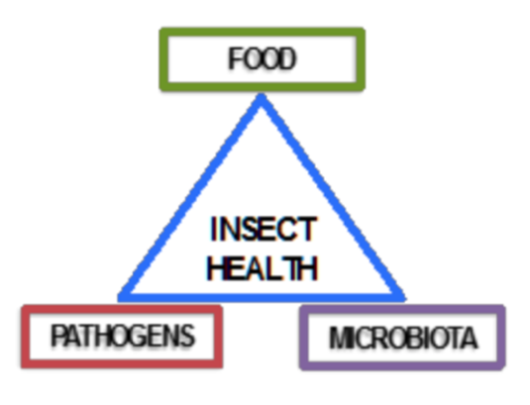
PhD project
Project 14 Microbiota mediated food protection against lepidopteran pathogens (FR)
Caterpillars are a nightmare for many farmers that have jeopardized agricultural systems worldwide, over many years. Synthetic insecticides to control them may fail due to the pests becoming increasingly resistant, and they negatively impact beneficial insects and the environment at large. Thankfully, biological control methods such as the use of pathogenic bacteria, fungi, and viruses have proven their efficacy. However, this efficacy varies with the different plants on which the caterpillars feed. Therefore, we need to investigate the link between the caterpillar diet and the infection process of microbial control agents.
Research has shown that nutrition alters the gut microbiota of insects and, just like in human beings, this has a role to play in the insect's response to pathogens. In some instances, gut microbiota protects insects against pathogens while in others, it facilitates pathogen infection. These interactions have been observed with baculoviruses and pathogenic bacteria as well, but the mechanisms behind the occurrences remain largely unknown. Therefore this study aims to investigate which key dietary components are responsible for significant changes in the gut microbiota, and how these positively or negatively affect baculovirus infection in the beet armyworm (Spodoptera exigua: Noctuidae).
Altogether, these results will integrate the interactions between the food, the microbiota, and the pathogens to understand how they a
Ultimately, the knowledge obtained will be fundamental to tailoring new biological control applications that are effective regardless of the host plant species, and optimizing mass rearing of lepidopteran pests, especially where they are used for in vivo pathogen production.
For this project, I bring a varied skill set with my background in food technology, food safety, and nutrition. I have as well vast experience in working with insects, notably in vivo production of baculoviruses for the control of Helicoverpa armigera (Cotton bollworm) in East Africa and research in the edible grasshopper Ruspolia differens widely consumed in Uganda.

